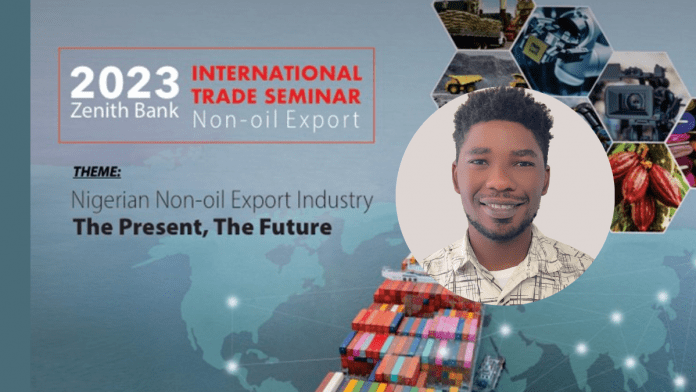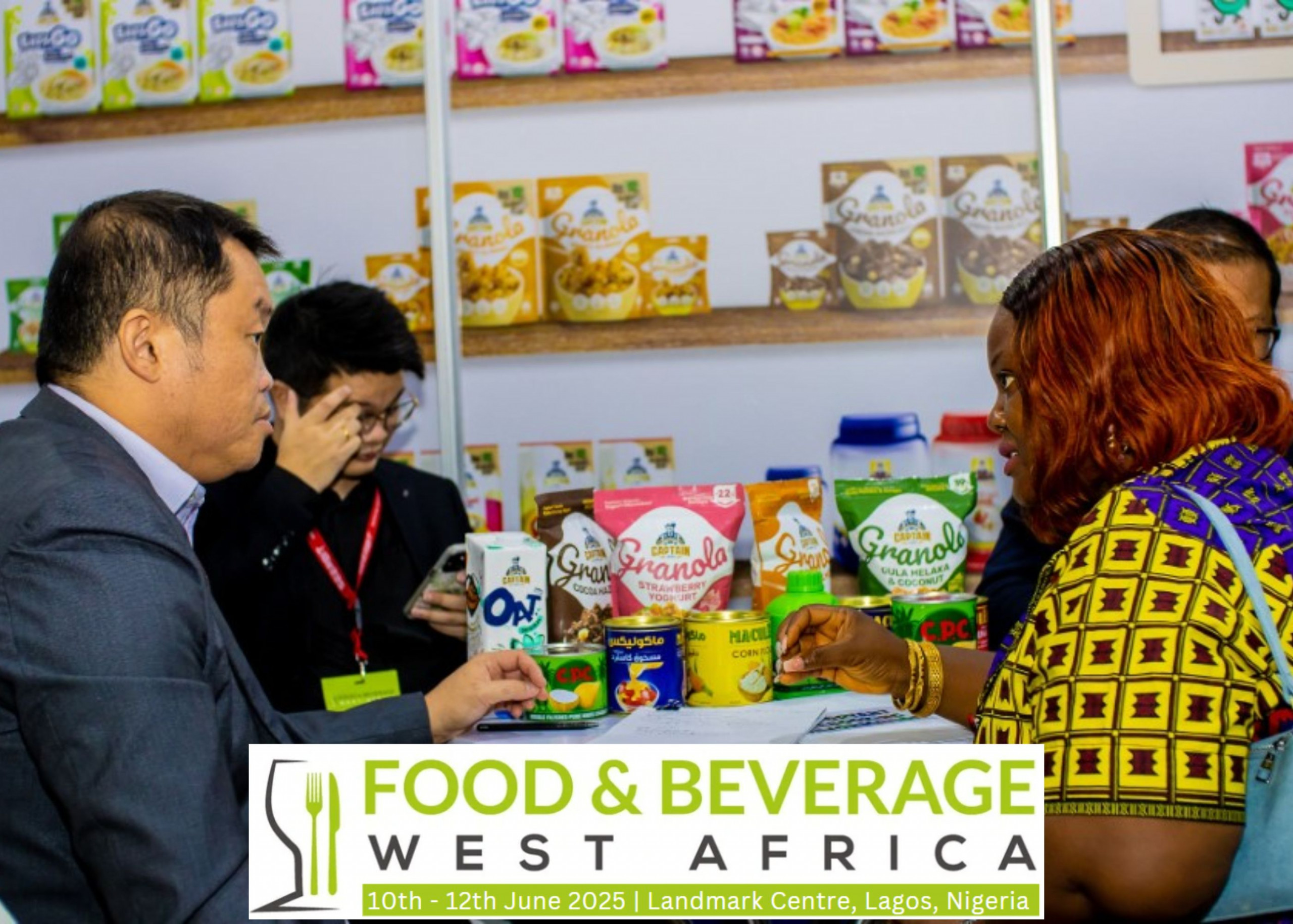For its eighth edition, the Zenith Bank Non-Oil Export Seminar assembles several of Nigeria’s industry leaders to discuss economic diversification. Originating in 2016, this annual event marks a significant departure from the country’s 50-year reliance on crude oil for exports.
You can find a list of special guests and panelists here, including the Secretary-General of the African Continental Free Trade Area (AfCFTA), Wamkele Mene; Olusegun Awolowo, Secretary of the National Action Committee on the African Continental Free Trade Area (AfCFTA); Zenith Bank CEO Ebenezer Onyeagwu; and others.
1. AfCFTA digital portal
Zenith Bank signed a memorandum of understanding (MoU) with the AfCFTA to create a digital portal. The deal involves Zenith Bank contributing $1 million to support the project named Smart AfCFTA.

A notable feature of this portal will be eliminating the need for a third foreign currency during trades, as highlighted by Wamkele Mene in his address. Instead, by adopting the Pan African Payment and Settlement System (PAPSS), both buyers and sellers will be able to transact in their local currencies. An example of PAPSS in action already exists: in March 2023, Ghana’s GCB Bank Plc sent a payment in Ghana Cedis to a Nigerian beneficiary, who received the payment in Naira instantly.
Another advantage of Smart AfCFTA is its potential to open up new markets, enabling traders to connect with more customers. With approximately 1.4 billion users across the 44 participating states, this trade platform has the potential to surpass the user base of Alibaba (900 million+) and Amazon (300 million+). Oluwasegun Awolowo projected that the AfCFTA digital market could contribute more than $450 billion to Africa and $76 billion to the rest of the world.
2. Non-oil export growth
Until recently, Nigeria relied solely on crude oil exports for revenue generation. Given that states also depend on the federal government’s allocations, the role of crude oil becomes even more significant.
However, recent efforts to enhance non-oil export revenue are yielding results. In his opening address, Zenith Bank’s CEO, Ebenezer Onyeagwu, disclosed that non-oil exports’ contribution to Nigeria’s GDP has risen from 0.36% in 2016 to 1.26% in 2023, displaying steady growth aside from a dip in 2020 due to COVID-19 restrictions.
A significant challenge for Nigeria’s export industry is value addition. Onyeagwu noted that a considerable portion of exports, both agricultural and industrial, remain in their raw, natural state, emphasizing the necessity of refining products further.
Yet, there is evidence of improved value addition in the sector too. Ezra Yakusak, the Executive Director/CEO of the Nigeria Export Promotion Council (NEPC), unveiled that, for the first time in 2022, Nigeria’s non-oil exports were dominated by semi-manufactured products rather than raw agricultural items. The NEPC’s findings are depicted in the accompanying chart:

3. Collaborations between agencies
Another thing that stood out to me during the seminar was witnessing the inter-agency collaborations and efforts aimed at elevating Nigeria’s non-oil exports. In a panel discussion, representatives Bashir Adeniyi Adewale from the Nigerian Customs and Mohammed Bello-Koko from the Ports Authority shared the advancements made by their organizations to enhance non-oil exports.
Adewale highlighted the Customs officials’ dedication to legitimizing trade at the Lilypond Export Command, reducing extortion from exporters, and implementing measures to prevent theft. Additionally, they’ve streamlined the exporting procedures through automation to expedite the process.
Meanwhile, Bello-Koko elaborated that the Nigerian Ports Authority (NPA) established a ‘one-stop export processing terminal’ to facilitate all necessary checks for outbound products. This terminal has transformed a process that typically spanned months into a matter of days. Through collaboration with the Lagos state government, they’ve also alleviated traffic congestion in export corridors. In the first half of 2023, the ports have already shipped between 3.4 million and 3.5 million metric tons of products, on track to surpass the 5.1 million metric tons shipped in 2022.

Yakusak, looking ahead, stated that the NEPC will continue granting export benefits to encourage exporters. The NEPC’s online portal has expanded its exporter network and issued certificates.
The Customs will persist in verifying the origin of export products, while the Ports Authority aims to expedite documentation through its digital portal. They have also introduced a port community system to simplify documentation procedures. Both agencies are committed to ongoing collaboration and mutual efforts.
4. Private sector role needs incentivising
In addition to Zenith Bank, the Nigerian government has largely been leading the efforts to promote non-oil exports. However, other private sector entities are also assuming crucial roles but must amplify their contributions for successful economic diversification. This sentiment resonated among all speakers during the event.
To maximise their benefits, certain prerequisites must be established. According to Satya Gopal Bhanja, the Managing Director of Century Mining Company, challenges facing the mining industry players encompass proper road infrastructure for transporting products from mining sites to markets, as well as security concerns along these routes. Additionally, there’s a pressing need for capacity building to foster local talent development, thus reducing reliance on more costly expatriates.
Bibhu Nanda from WACOT Ltd. emphasised that subsidies from export destinations, like reduced fees and duties, can incentivise exporters. He pointed out that exporting can be financially burdensome for agricultural producers, especially considering narrow profit margins by the time products cross the border.
Alhaji Muritadha Adeyemi Adeniji, Chairman of Starlink Global & Ideal Limited, stressed the necessity of investments in the agriculture sector. To mitigate the risk of bad loans, which has generally discouraged creditors, banks should motivate their staff to facilitate loan recovery. For instance, while many farmers who benefited from the Anchor Borrowers’ Programme (ABP) have repaid their loans, he claims bank staff report lower repayment figures.
5. Services exports industry exists but…
Many overlook the services industry when discussing the non-oil export sector, perhaps due to its informal and less regulated nature compared to other sub-sectors. During the conference, the CEO of NEPC admitted the lack of sufficient data on the services industry for insightful reports.
The need to formalise services has become evident as its value becomes more apparent. For example, Afrobeats now generates about $2 billion while Nollywood was worth $6.4 billion, according to Olugbenga Agboola, CEO of Flutterwave. Clearly, Nigerian creatives, from entertainment to the gig industries, are setting trends.

Jason Njoku, CEO of iROKOtv, suggested a strategy to repatriate money earned abroad by these talents to count as non-oil export earnings in Nigeria. He stressed the necessity for Nigeria to cultivate its talent pool by fostering an enabling environment and rebuilding relationships with young people. This approach could discourage migration and encourage return.
Mimi Bartels, general manager of Filmone Entertainment, advocated for relaxed censorship on content production and urged the Nigerian Communications Commission (NCC) to combat file-sharing piracy and enhance copyright regulations. She also called for a two-way education system for creatives to utilize available funds and for banks to create products targeting them.
Chika Nwangwu, deputy director of the Central Bank of Nigeria (CBN), highlighted automated trade forms through trade monitoring systems and NXPs, offering creatives access to funding opportunities and protection.
Akeem Lawal, managing director of Interswitch, emphasized collaboration with the government for services, intellectual property protection, and investments, promoting the export of products and services created within the country rather than exporting talents.
Agboola called for deliberate government interventions in capital and concurred with Lawal’s perspective on exporting products and services while retaining talent.




Kudos to Zenith Bank for setting the pace for a better economy in Nigeria on the international stage with their seminar. Indeed, Nigeria has to look beyond nonoil export industries for a better economy.